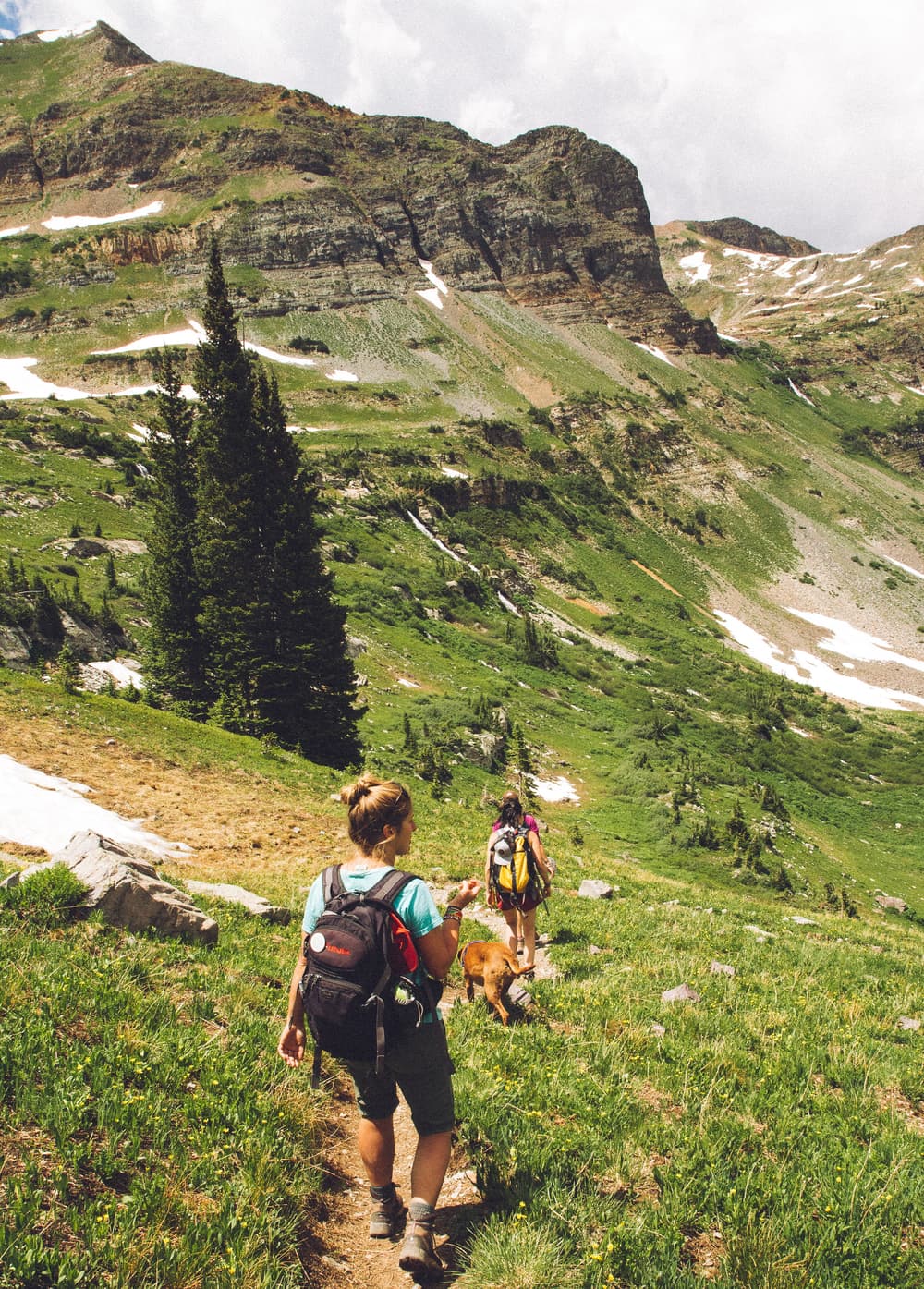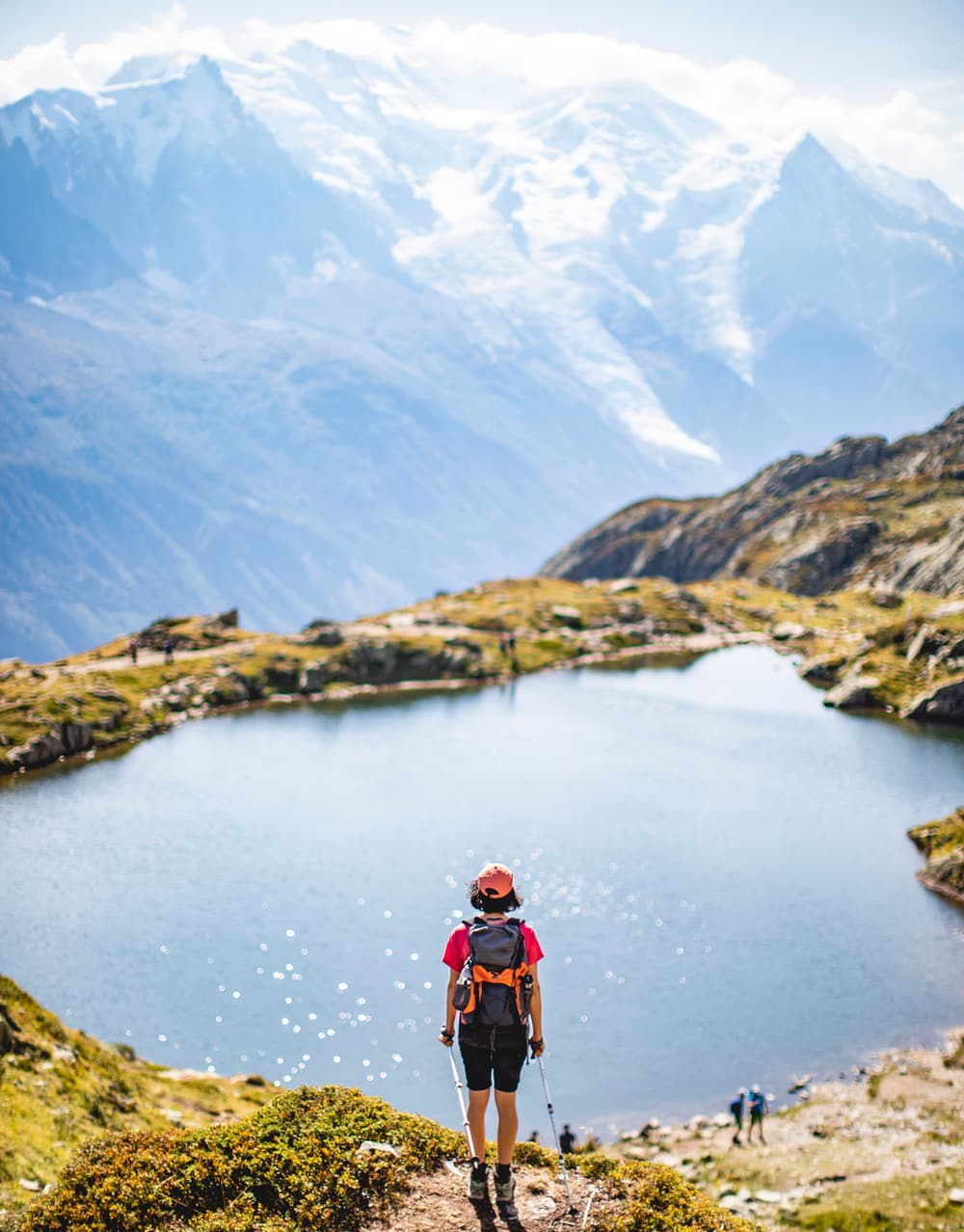Summer is the perfect time to get out and enjoy nature’s glory. However, you have to prepare yourself for your excursion. Otherwise, you could run into trouble, with soaring temperatures leaving you more than sweaty.
What should you do to protect yourself when enjoying mother nature this season? Here are ten tips for hiking in the summer heat.

1. Stay Hydrated
Dehydration can be devastating when you’re far from home. Thirst is generally your first indicator — you should sip up the first moment you notice. Leaving yourself unslaked can result in the following symptoms:
- Feeling lightheaded and dizzy
- Extreme fatigue
- Dark yellow or brownish urine
Letting yourself get too thirsty also contributes to overheating. Sipping some iced cold water helps you maintain your internal body temperature even as it heats up outside.
2. Wear Light Fabrics
Darker colors absorb the sun’s rays, keeping heat closer to your skin. Light fabrics reflect more of the spectrum, keeping you cooler.
You should also stick to lightweight, natural fibers like cotton and linen. Artificial substances like polyester can trap heat close to your skin, making you uncomfortable.
3. But Pull Up Your Socks
However, you shouldn’t go frolicking through the long grass barefoot, even if you’re relatively sure you won’t step on a rock or a tack. Why? Ticks love to hide in shrubbery, and they carry nasty diseases like Lyme disease.
You should wear long socks and inspect your skin upon returning back inside. If you notice any ticks, use a fine-nosed tweezers to remove them, grabbing each one close to the skin and trying not to crush it. After plucking it from your flesh, clean the bite with antiseptic soap and water.

4. Go Early
Temperatures climb as the day advances. Why not take your hike first thing in the morning? You’ll check exercise off your to-do list and enjoy the splendor of sunrise.
Be aware that many animals are also more prevalent at dawn and dusk. Take your camera — who knows what you’ll spy?
5. Visit a Cooler Climate
If it’s too hot to hike in your local nature area, why not look to cooler climes? You could travel to one of England’s many natural parks such as Dartmoor or Yorkshire Vales.
Bring your little ones along for the fun. Many such locations offer programs for the youngest kids, teaching them valuable lessons about wilderness conservation. Even if they don’t participate in a formal class, your visit will spark their sense of wonder and make them more environmentally minded.
6. Wear Sunglasses
The sun can burn more than your skin. UV light exposure contributes to age-related macular degeneration and cataracts.
Protect your peepers with a quality pair of shades intended to block the full UVA and UVB spectrum. You want to continue to appreciate nature’s beauty well into your sunset years.

6. Wear Sunglasses
The sun can burn more than your skin. UV light exposure contributes to age-related macular degeneration and cataracts.
Protect your peepers with a quality pair of shades intended to block the full UVA and UVB spectrum. You want to continue to appreciate nature’s beauty well into your sunset years.
7. Cool Your Neck
Have you seen folks walking around with what looks like a towel on the back of their hat? This flap is designed to keep the sun off your neck, helping to keep you cooler. It can also prevent a nasty sunburn.
8. Freeze Your Hat
You might have heard the winter advice that you lose most of your heat through your head. Although this wisdom isn’t statistically true, cooling your cabeza will lower your overall body temperature.
All you have to do is pop your hat in the freezer for a bit before heading out on your excursion. You’ll enjoy at least a brief respite from high temperatures.
9. Ice Your Wrists
Here’s an old wives tale that is based in science: icing your wrists will cool your internal body temperature more quickly. That’s because your blood vessels are closer to your skin here.
Therefore, you can cool off relatively quickly by placing ice on your wrist. Don’t press the frozen cube directly against your flesh — wrap it in a bit of cloth to keep it from sticking.
10. Keep It Short and Sweet
Finally, there’s no need to hike for hours. Moderate exercise is best for you, anyway. Recent research suggests that workouts lasting too long or causing too much exertion can spike your cortisol levels. You’re also more likely to dehydrate or overheat.
Therefore, keep your trip to less than an hour. If you crave a longer excursion, take along a picnic lunch and plan some rest stops along the way.
Tips for Hiking in the Summer Heat
Summer is the best time to explore nature’s bounty. Hiking is fabulous exercise, but you must prepare yourself.
Follow the ten tips above for hiking in the summer heat. You’ll enjoy your outing more while staying safe and healthy.

